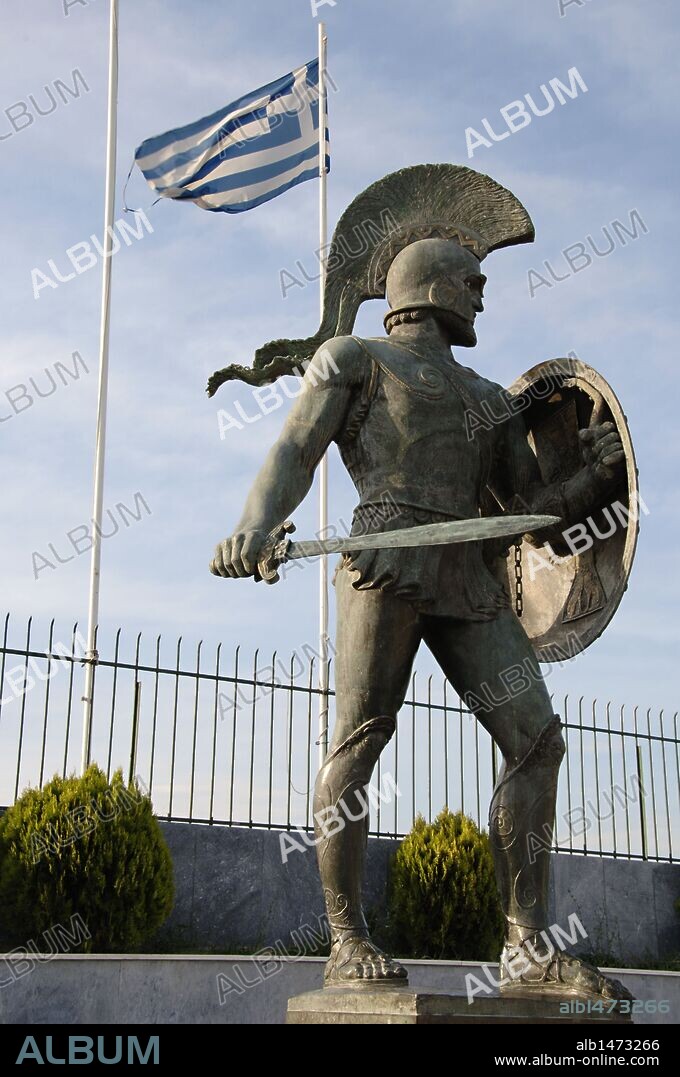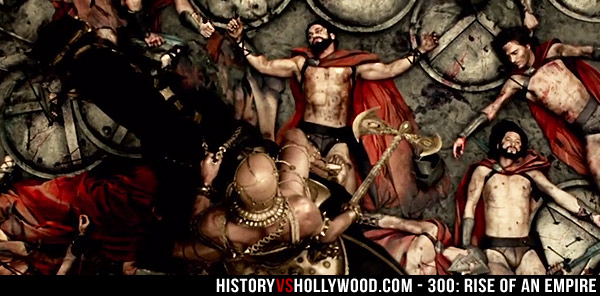One of the most common questions that arise when watching historical films is whether they are truly based on real events or just a work of fiction. In the case of “300,” the epic graphic novel adaptation directed by Zack Snyder, the debate intensifies. Released in 2006, “300” portrays the legendary Battle of Thermopylae, where King Leonidas and 300 Spartans fought against the massive Persian army. But how much of it is rooted in reality? This blog delves into the heart of the matter to explore if “300” is indeed based on true events or if it takes poetic license with history.
The Battle of Thermopylae
The Battle of Thermopylae was a significant event in ancient Greek history, known for the brave stand of 300 Spartan warriors against the massive Persian army. This battle took place in 480 B.C during the Greco-Persian Wars.
Historical Significance
The Battle of Thermopylae marked the valiant effort of the Greek forces to resist the Persian invasion led by King Xerxes. It became a symbol of courage and sacrifice in the face of overwhelming odds.
To remember this event, numerous monuments and movies like “300” have been created to depict the heroic stand of the Spartans.
Legacy and Popularity
The story of the Battle of Thermopylae has captured the imagination of people for centuries. The movie “300,” although not entirely historically accurate, brought the tale to a wider audience.
Its portrayal of the Spartans’ bravery has made it a popular choice for those interested in ancient battles and heroic tales.

Historical Accuracy in “300”
When discussing the historical accuracy of the movie “300,” it is important to note that the film is based on the 1998 comic series of the same name by Frank Miller and Lynn Varley. While the graphic novel takes some inspiration from the historical Battle of Thermopylae that occurred in 480 BC during the Greco-Persian Wars, it is important to understand that 300 is a stylized retelling of the events rather than a factual representation.
Depiction of Spartans
The movie portrays the Spartans as fierce warriors with chiseled physiques and unwavering loyalty to their homeland. While the fierce fighting spirit of the Spartans is accurately depicted, scholars argue that the portrayal of their physical appearance and military tactics is exaggerated for dramatic effect. 300 focuses on the heroic narrative rather than historical accuracy.
Historical Context
While the overall premise of the Battle of Thermopylae is real, the movie takes significant creative liberties in its storytelling. Events such as the supernatural elements, exaggerated numbers of soldiers on both sides, and the portrayal of Xerxes differ from historical records. It is essential for viewers to approach the film as a work of fiction inspired by historical events rather than a documentary.
The Spartans: Fact vs Fiction
When it comes to the portrayal of the Spartans in the popular movie “300,” there is a stark difference between fact and fiction. While the film takes inspiration from historical events, it also incorporates considerable fictional elements to enhance the storyline and entertainment value.
Historical Accuracy
The Battle of Thermopylae, which forms the crux of the movie’s plot, did indeed occur in 480 BC during the Greco-Persian Wars. However, the depiction of the Spartans as a small band of warriors holding off the massive Persian army single-handedly is an exaggeration.
Historical records suggest that there were more Greek allies alongside the Spartans during the battle, and the Persian army was also not as monstrous as portrayed in the film. The film’s emphasis on Spartan valor and military prowess is accurate to some extent, but it oversimplifies the complexities of the actual events.
Character Portrayal
In “300,” the Spartan warriors are depicted as superhuman, almost mythical figures with exceptional fighting skills and unwavering loyalty to their homeland. While the Spartans were undoubtedly skilled warriors trained from a young age, the film exaggerates their abilities for dramatic effect.
The character of King Leonidas, in particular, is portrayed as a larger-than-life hero leading his men fearlessly into battle. While King Leonidas did exist and showed great bravery during the Battle of Thermopylae, the film embellishes his persona for cinematic appeal.
Xerxes and the Persians
One of the key figures in the historical events surrounding the Battle of Thermopylae is Xerxes I, the King of Persia. Xerxes, also known as Xerxes the Great, ruled over the vast Persian Empire from 486 to 465 BC. He was the son of Darius the Great and a member of the Achaemenid dynasty. Xerxes is famously remembered for his attempted conquest of Greece, which ultimately led to the famous battle that inspired the movie “300.”
Xerxes’ Invasion of Greece
After his father’s failed invasion of Greece, Xerxes sought to continue the campaign to expand the Persian Empire’s territories. In 480 BC, Xerxes led a massive army and fleet to Greece, commanding forces estimated to be in the hundreds of thousands. The Persian invasion aimed to punish the Greeks for their support of the Ionian Revolt and to extend Persian influence in the region.
Xerxes’ Crossing of the Hellespont
One of the significant events in Xerxes’ campaign was his crossing of the Hellespont (modern-day Dardanelles strait) to reach Greece. According to historical accounts, Xerxes ordered a bridge to be built across the Hellespont to allow his troops to cross into Europe. However, a storm destroyed the first bridge, leading Xerxes to famously declare war on the waters by having the engineers of the bridge beheaded and the strait whipped as punishment.
Leonidas: Hero or Legend?
Leonidas, the legendary King of Sparta, is often portrayed as a heroic figure in the historical epic “300.” While the movie takes creative liberties, Leonidas was indeed a real historical figure who played a crucial role in the Battle of Thermopylae in 480 BC.
Legacy of Leonidas
Leonidas’ leadership and bravery have cemented his status as a hero in Greek history. His stand against the Persian army with just 300 Spartans inspired future generations to value courage and sacrifice in the face of overwhelming odds.
Even though Leonidas and his men ultimately perished in battle, their defiance became a symbol of Greek resistance against foreign invaders.
Historical Accuracy
While “300” exaggerates certain aspects of Leonidas’ story for cinematic effect, the core premise of his valiant last stand is based on true events. Historians have corroborated the general outline of the Battle of Thermopylae and Leonidas’ role in it.
- Modern scholars continue to study the historical accounts and archaeological evidence to piece together the full story of Leonidas’ bravery.

Feedback from Historians
As per the latest research conducted by renowned historians in the field, the question of “Is 300 Really Based on True Events?” continues to be a topic of debate. Historians have analyzed the historical accuracy of the film and provided varying perspectives on its portrayal of the Battle of Thermopylae.
Historical Accuracy
Many historians argue that while the film captures the essence of the battle, it takes creative liberties in its depiction of events. The portrayal of the Persian Empire and Spartan society has been a point of contention among experts.
Evidence-Based Critiques
Some historians point out that the film exaggerates the number of soldiers on both sides and oversimplifies the complexities of the historical context. They highlight inconsistencies in the timeline and tactics depicted in the movie.
Frequently Asked Questions
-
- Is the movie ‘300’ based on true events?
- While the movie ‘300’ is inspired by historical events, it is largely a work of fiction based on the graphic novel by Frank Miller.
-
- What are some historical inaccuracies in the movie ‘300’?
- The movie ‘300’ takes many liberties with historical accuracy, including exaggerating the number of soldiers involved and portraying the Spartans in a more heroic light than historical records suggest.
-
- Are there any aspects of the movie ‘300’ that are historically accurate?
- While the movie ‘300’ is known for its stylized visuals and exaggerated action sequences, some elements such as the Battle of Thermopylae and the Persian invasion of Greece are based on historical events.
-
- Why do movies based on historical events take creative liberties?
- Filmmakers often take creative liberties when adapting historical events to make the story more entertaining or dramatic for the audience. This can involve simplifying complex events or characters, adding fictional elements, or altering timelines for narrative purposes.
-
- Is it important for viewers to distinguish between fact and fiction in movies based on true events?
- While movies based on true events can be entertaining, it is crucial for viewers to recognize that these films are interpretations rather than strict retellings of history. Engaging with additional sources and research can help audiences develop a more accurate understanding of the events depicted in these movies.
Unraveling the Truth: Final Thoughts
After delving into the historical accuracy of the film “300,” it is evident that while the movie is inspired by true events, it takes significant liberties in its portrayal. The Battle of Thermopylae did occur, but the movie exaggerates and embellishes many aspects for entertainment purposes. Separating fact from fiction is crucial when consuming historical dramas like “300.” By questioning the authenticity and understanding the creative liberties taken, we can appreciate the film for what it is – a cinematic representation rather than a documentary. Remember, while “300” may spark interest in history, it is essential to explore the actual accounts to grasp the full story.



